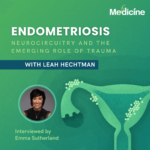Like most substances, too much of a good thing can be bad. Cholesterol is an essential aspect of our health, however, when we have too much of the bad type it can have harmful effects on the body when it is deposited in artery walls (atherosclerosis). This is well known to increase the risk of heart attack and stroke. Cholesterol is the precursor of bile (a digestive juice), oestrogen, progesterone, testosterone, cortisol and vitamin D. Cholesterol is an integral component of every cell membrane and forms part of the myelin sheath around nerve fibres.
Most of the cholesterol in our bodies is made by our liver and does not come from food. In fact the dietary intake of saturated fats has more of an impact on blood cholesterol levels than the dietary intake of cholesterol does (for most people). Approximately 90% of the cholesterol in the body is found within cells and not in the blood stream as commonly thought.
Your liver is making cholesterol right now, using fragments obtained from carbohydrates, proteins and fats, at the rate of 5 x 1016 (or 50 000 000 000 000 000) molecules of cholesterol per second… Don’t be too alarmed though, each molecule is very small so this adds up to about 800-1500 mg of cholesterol each day.
The rate at which our bodies make cholesterol depends on factors such as: the amount of raw materials available, the amount of bile production and the presence of certain hormones (for example insulin – high insulin is associated with increased cholesterol production). You will not find cholesterol in plant foods, even those containing fat such as avocadoes and coconuts. We make our own cholesterol, as well as consuming cholesterol from the food we eat. The amount of blood cholesterol usually stays constant i.e. the liver adjusts its production according to dietary intake.
Supportive treatment from a naturopathic perspective includes the obvious – dietary and nutritional factors such as encouraging essential fatty acids, discouraging saturated fats, encouraging fibre rich diet to ‘carry’ excess cholesterol out of the body, supplementing with relevant cofactors and addressing stress. The more stressed we are the more cholesterol we manufacture to produce cortisol. The most effective treatment focuses on addressing the role of the liver using supportive herbs such as St Mary’s Thistle and Globe Artichoke.


